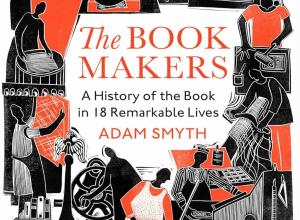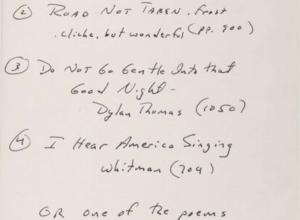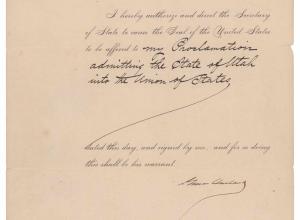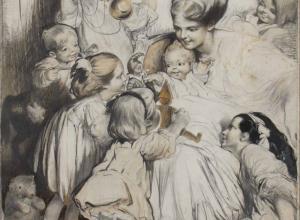HarperCollins at 200
 It was in 1817 that brothers James and John Harper opened a small printing shop in New York City. Among their successes over the past 200 years, HarperCollins pioneered the process of stereotyping; published the first American editions of the Brontë sisters' novels; and championed Martin Luther King, Jr., publishing his Stride Toward Freedom: The Montgomery Story in 1958.
It was in 1817 that brothers James and John Harper opened a small printing shop in New York City. Among their successes over the past 200 years, HarperCollins pioneered the process of stereotyping; published the first American editions of the Brontë sisters' novels; and championed Martin Luther King, Jr., publishing his Stride Toward Freedom: The Montgomery Story in 1958.
To celebrate its anniversary, the long-running book publisher has created an extensive website that encompasses not only the Harper history, but the histories of the companies that have come under its umbrella during the ensuing two centuries, e.g. Collins, Thomas Nelson, Harlequin, Allen & Unwin, Lippincott, etc. The site features an annotated historical timeline, a selection of stories about significant books and authors, and a list of 200 "iconic" titles, including Riders of the Purple Sage, Little House on the Prairie, Ariel, A Christmas Carol, One Hundred Years of Solitude, and Moby-Dick.
 The 'Why I Read' section shares quotes from authors around the world about reading, writing, and books that have influenced them. I particularly like T.C. Boyle's take: "I read in the way that I breathe, as a necessity of life. Reading allows me to vanish from the oppressive material world and its eternal electronic hum and find myself in some other place altogether."
The 'Why I Read' section shares quotes from authors around the world about reading, writing, and books that have influenced them. I particularly like T.C. Boyle's take: "I read in the way that I breathe, as a necessity of life. Reading allows me to vanish from the oppressive material world and its eternal electronic hum and find myself in some other place altogether."
One can also poke into the HC archives to read a 1959 letter by Russell Hoban to his editor Ursula Nordstrom upon publication of his Bread and Jam for Frances; appreciate the original artwork for a 1965 edition of The Lion, the Witch and the Wardrobe, and see photos from Collins' editorial offices (in Canada) c. 1940s.
N.B. Through July 21, Columbia University's Butler Library is hosting Harper & Brothers to HarperCollins Publishers: A Bicentennial Exhibition on this very topic.
Images, above: Vaults in the Harper & Brothers offices where stereotyped plates were stored (circa 1855); middle: The original agreement between Herman Melville and Harper & Brothers for Moby-Dick, dated September 12, 1851. Via 200.hc.com.















